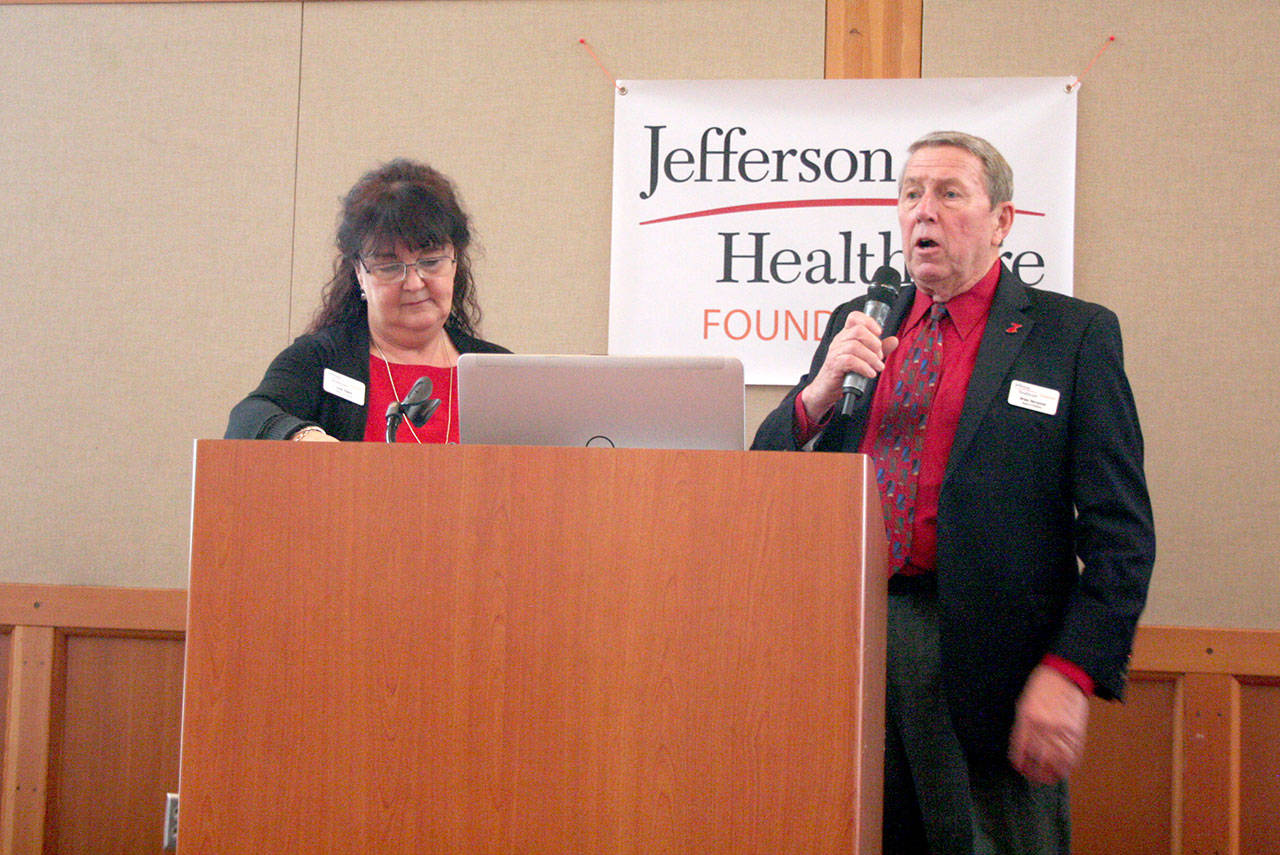PORT TOWNSEND — Heide Chaney wants people to become aware of their risk factors for heart disease.
The nurse practitioner who works in the cardiology unit at the Jefferson Healthcare medical center provided the keynote address Friday during the fifth annual Well Hearts luncheon, and she quoted a patient talking about his heart.
“It works until it doesn’t,” Chaney said the patient told her.
Chaney was one of several speakers during the event at the Northwest Maritime Center, where the Jefferson Healthcare Foundation surpassed its $10,000 goal to purchase specialized medical equipment for the hospital’s cardiology department.
The foundation raised more than $14,000, including ticket sales, it announced Saturday.
The equipment is a disinfection station for a probe used in a transesophageal echocardiogram, which can take detailed pictures of a heart and the arteries that lead to it with high-frequency sound waves.
Kris Becker, the executive director of the foundation, said trained staff members are in place, and patients may be able to start making appointments as early as March or April, as soon as the equipment is purchased.
Last year’s Well Hearts luncheon raised $19,340, including ticket sales, Becker said, and it marked the beginning of a series of events to raise $50,000 for medical equipment.
Friday’s event drew about 75 community members who celebrated national Wear Red Day to raise awareness of heart disease.
Chaney said heart disease affects about 647,000 Americans every year, and one person dies every 37 seconds due to heart disease, the leading cause of death for women in the United States.
“We grow up eating what we want and exercise if we want,” she said. “The reality is, the heart takes the brunt of our behaviors.”
She cited high blood pressure, high cholesterol and smoking as three key risk factors because they can be modified.
A combination of an unhealthy diet, a lack of physical activity and excessive alcohol use, among other risks, can be dangerous, Chaney said.
“Having more than one risk factor is especially dangerous because they tend to gang up on each other,” she said.
Chaney said changes can be made gradually, even one at a time.
“Become aware of your own personal risk factors for heart disease, and write them down,” she said.
A healthier diet consists of fruits, vegetables and whole grains. Avoid foods that are high in saturated fats, cholesterol and added sugars, and be smoke-free, she said.
Randy Holeman, the director of diagnostic imaging at Jefferson Healthcare, said there were about 1,500 echocardiograms performed at the hospital in 2019, a 12 percent increase over the previous year.
Any piece of medical equipment is sterilized, Becker said, but this particular probe needs to be “hyper sterilized” because a patient will swallow it so it can provide images of the back of the heart from the esophagus.
“It allows doctors to have a different view of the heart,” she said.
Jefferson Healthcare CEO Mike Glenn said the hospital has relied on donations from the foundation and the auxiliary each year for both its capital and operational budget requirements.
“The foundation has played an important part in the past five to 10 years, and I can see it playing an even more important part in the decades to come,” he said.
________
Jefferson County Managing Editor Brian McLean can be reached at 360-385-2335, ext. 6, or at bmclean@peninsuladailynews.com.

